Few can argue but that the European project and the Common Agricultural Policy (CAP) have produced huge successes. Self-sufficiency in many foods displaced hunger and we have seen huge advances in social justice legislation, significant harmonisation of legislation between member states and international trade agreements.
Many of the articles in this publication look back at how the original common market evolved to become the European Economic Community (EEC) and, later, the European Union (EU) – projects that were conceived out of necessity which brought one other major benefit to Europe – peace.
Peace enabled trust among nations, inside and outside of the community, and this enabled trade and interdependence among countries inside and outside of the bloc.
Unfortunately, this has not been fully reciprocated and the Russian invasion of Ukraine has forced a rethink on our interdependence with external states, particularly regarding critical essentials like energy. Outsourcing our independence has led to all kinds of challenges and it is predominantly external factors which are driving the current spate of inflation.
Energy, food and fertiliser are at the heart of the current concerns for all economies.
What this will mean for the future direction of the EU, only time will tell. A lot will depend on how long the war and its consequential economic turbulence persists. However, many are agreed that the impact of that invasion is more likely to last for years than months.
The EU change of focus
From an agricultural perspective, we tend to have a particular view of the European project which is based heavily around markets and prices.
We left the production/expansionist phase in agriculture behind us many years ago and we have moved into a more globalised economy where trade in agricultural commodities pertains for all kinds of goods.
This seems to be the new European model where the emphasis has largely moved from food security to environmental protection and global trade.
This can happen because, in general, the people of Europe are well-fed and relatively affluent, though a minority remain exposed to food insecurity for multiple reasons.
As we look into the next phase of EU development, we can see the change in emphasis unfold. Europe has set itself to be a leader in actions on climate change and in carbon reduction.
It has also set about addressing what it perceives as imbalances in environmental stewardship and it is attempting to point a new direction for the evolution of EU and world agriculture.
This directional change is spelled out clearly in its Green Deal, Farm to Fork, biodiversity and sustainability strategies. We in Ireland tend to see these as obstacles to the further development and intensification of agriculture but there may be more to them than that.
We see intense debates and the often demonisation of agriculture as being a significant contributor to overall climate change and environmental degradation.
These accusations may be partly valid, but there is little acknowledgement that increased food production is essential for the growing global population (8.5bn by 2030, 9.7bn in 2050 and peaking at around 10.4bn during the 2080s, according to the UN).
This food production will inevitably involve some collateral damage to the environment.
No longer about production
The future direction set for European development seems to have moved away from production, expansion and exporting food, which is contrary to Irish objectives.
Sustainability and food security have become buzzwords since the invasion of Ukraine but the future direction for European development was set long before that.
Emissions, pollution and biodiversity are now established as being a more important EU objective than the need to feed the world.
We must wait and see if the current geopolitical difficulties will lead to a temporary policy alteration or a fundamental change in direction caused by the realities of a war on our doorstep.
Ireland may see the European Union as a vehicle for the marketing of continually increasing output, but the EU is now seeing this differently. It seems that the EU is no longer willing to risk further production which can be associated with potentially polluting activities on EU territory.
Expensive grain could easily be priced out of ruminant markets and make white meat more expensive
We hear it said that “it is not the responsibility of the EU to feed the world”, but we also hear that “the EU has a responsibility to help ensure that others outside of Europe are fed”.
More about this later.
Within reason, the production growth in agriculture has been closely mirrored by demand growth. This has resulted from a combination of increasing global population and higher spending power in developing economies.
So the demand has been for more food and higher-quality protein when population growth and improved living standards occur simultaneously. The big question now is, will both of these continue to act to drive growth?
Huge uncertainties
The answer to the preceding question is not easy. Population growth seems set to continue but will demand or the ability to purchase be impacted by inflation? Indeed, will there be adequate availability of individual foodstuffs into the future?
The sad thing is that these questions have much greater significance for the poorer countries of the world than for the EU.
The next 10 years will be much more uncertain than the past 10 – beyond that is like looking into a foggy crystal ball. However, a few things are worth noting.
Over the past 25 years, the world has produced an additional 42mt of grains every year, year after year. This has barely managed to stay ahead of the increasing demand which left small surpluses to temper prices.
While some of this increased production has come from improved husbandry, most of it has come from increased production area. This is either new land in places like central Europe or south America or altered land use elsewhere.
While we can expect to achieve ongoing improvement in genetic potential, this alone is unlikely to enable us keep pace with demand if additional land is not available.
There is talk that climate change will potentially enable access to land that is further north in Canada and there is still an amount of land in Brazil.
There is also a possibility that some land in Siberia may become suited to agriculture as a consequence of climate change.
Such changes may potentially add further land availability but 42mt of output requires roughly 10m hectares of new land and that cannot be found every year.
If this additional output decreases or stops, it seems inevitable that grain supply will become much tighter than today and will impact on price.
It seems that Europe may be looking strategically at large land masses where population growth seems set to continue
Expensive grain could easily be priced out of ruminant markets and make white meat more expensive. Might such a consequence have implications for ruminant production systems, or even how or where that might be produced in an effort to enhance sustainability and secure total global food supply?
As we increase our sensitivity to environmental issues, we are likely to witness an increased awareness of the potential impact of farming systems in local environments.
There is little doubt but that technology will evolve which will help to minimise these impacts while facilitating production.
Give a man a rod
Earlier, I indicated that the EU seems relatively indifferent to the increasing food needs of the growing global population, not to mention food security concerns. However, EU officials have also commented that it has an obligation to help poorer countries to feed themselves, where possible. Africa is thought to be the continent that will have the next big population explosion and it is worth remembering that it is bigger than China, the US, India, Mexico and a big part of Europe combined.
It seems that Europe may be looking strategically at large land masses where population growth seems set to continue.
The objective will be to help to develop agriculture in these regions with the intention of producing local food, adding economic benefit to local communities while decreasing the overall carbon footprint and food miles associated with so much of the food chain today. But there is also the possibility that better-off countries may then want to purchase goods from the EU.
There is also an awareness that EU export subsidies in the past may have hindered the development of agriculture in these regions.

Emissions, pollution and biodiversity are now established as being a more important EU objective than the need to feed the world.
Perhaps this change is best stated as the old proverb: “Give a man a fish and you feed him for a day, give him a fishing rod and you feed him for life.”
Giving others the tools to help them to feed themselves is far more sustainable than having to move food products around the world. It is hard to disagree with this objective, especially where future economic development is also at stake.
The bigger question is, can this be done in countries that have been unstable politically and where corruption is rife? The successful improvement of the economy of any such country is dependent on having a stable political environment free from corruption, which will enable inward investment.
Where this is achievable, the hope will be that agriculture will be one of the first industries to be developed so that people can go to bed without being hungry and go to work with enthusiasm for the future.
If this is to be EU policy going into the future, it is hard to argue with its validity providing it has been fully thought through. It also explains some of the indifference to increasing internal production to help contribute to overall global food supply.
It seems that any move for increased internal production that is associated with the risk of environmental damage will not be supported in the future, at least for as long as the current political objectives remain.
While there may be need for change on the production side to help cope with current food security concerns, it seems highly unlikely that there will be a change in the attitude to climate issues or environmental risk.
Biodiversity versus hunger is a stark choice and the political attitude may change if the EU is seen to be importing food that could keep others in the world alive.
Given this background, it would seem to be very important that the environmental footprint of agriculture be put beyond reproach if we are to see continued expansion in farmgate output for food production. We must also remember that part of the objective of giving a man a fishing rod is to ensure that somebody else from somewhere else is not selling more cheaply or giving fish away for free.
This would undermine the basis of a sustainable food production system for the people and the economy in which they operate. Europe is likely to be reminded of its history of export refunds, which sold subsidised European products at a much lower price into sensitive markets which often undermined their local economies.
EU bureaucrats have clearly indicated that the EU has its long-term policy objective set and that bumps in the road such as the energy crisis, the war in Ukraine or the issue of food security are individual crisis points that must be dealt with separately along the way.
We in Ireland may wish that this policy be different, or that it should now be changed, but it would seem that the current majority in Europe takes a different view.
We would be well advised to be aware of this trajectory for food production as we look to develop our farms and food industry.
Few can argue but that the European project and the Common Agricultural Policy (CAP) have produced huge successes. Self-sufficiency in many foods displaced hunger and we have seen huge advances in social justice legislation, significant harmonisation of legislation between member states and international trade agreements.
Many of the articles in this publication look back at how the original common market evolved to become the European Economic Community (EEC) and, later, the European Union (EU) – projects that were conceived out of necessity which brought one other major benefit to Europe – peace.
Peace enabled trust among nations, inside and outside of the community, and this enabled trade and interdependence among countries inside and outside of the bloc.
Unfortunately, this has not been fully reciprocated and the Russian invasion of Ukraine has forced a rethink on our interdependence with external states, particularly regarding critical essentials like energy. Outsourcing our independence has led to all kinds of challenges and it is predominantly external factors which are driving the current spate of inflation.
Energy, food and fertiliser are at the heart of the current concerns for all economies.
What this will mean for the future direction of the EU, only time will tell. A lot will depend on how long the war and its consequential economic turbulence persists. However, many are agreed that the impact of that invasion is more likely to last for years than months.
The EU change of focus
From an agricultural perspective, we tend to have a particular view of the European project which is based heavily around markets and prices.
We left the production/expansionist phase in agriculture behind us many years ago and we have moved into a more globalised economy where trade in agricultural commodities pertains for all kinds of goods.
This seems to be the new European model where the emphasis has largely moved from food security to environmental protection and global trade.
This can happen because, in general, the people of Europe are well-fed and relatively affluent, though a minority remain exposed to food insecurity for multiple reasons.
As we look into the next phase of EU development, we can see the change in emphasis unfold. Europe has set itself to be a leader in actions on climate change and in carbon reduction.
It has also set about addressing what it perceives as imbalances in environmental stewardship and it is attempting to point a new direction for the evolution of EU and world agriculture.
This directional change is spelled out clearly in its Green Deal, Farm to Fork, biodiversity and sustainability strategies. We in Ireland tend to see these as obstacles to the further development and intensification of agriculture but there may be more to them than that.
We see intense debates and the often demonisation of agriculture as being a significant contributor to overall climate change and environmental degradation.
These accusations may be partly valid, but there is little acknowledgement that increased food production is essential for the growing global population (8.5bn by 2030, 9.7bn in 2050 and peaking at around 10.4bn during the 2080s, according to the UN).
This food production will inevitably involve some collateral damage to the environment.
No longer about production
The future direction set for European development seems to have moved away from production, expansion and exporting food, which is contrary to Irish objectives.
Sustainability and food security have become buzzwords since the invasion of Ukraine but the future direction for European development was set long before that.
Emissions, pollution and biodiversity are now established as being a more important EU objective than the need to feed the world.
We must wait and see if the current geopolitical difficulties will lead to a temporary policy alteration or a fundamental change in direction caused by the realities of a war on our doorstep.
Ireland may see the European Union as a vehicle for the marketing of continually increasing output, but the EU is now seeing this differently. It seems that the EU is no longer willing to risk further production which can be associated with potentially polluting activities on EU territory.
Expensive grain could easily be priced out of ruminant markets and make white meat more expensive
We hear it said that “it is not the responsibility of the EU to feed the world”, but we also hear that “the EU has a responsibility to help ensure that others outside of Europe are fed”.
More about this later.
Within reason, the production growth in agriculture has been closely mirrored by demand growth. This has resulted from a combination of increasing global population and higher spending power in developing economies.
So the demand has been for more food and higher-quality protein when population growth and improved living standards occur simultaneously. The big question now is, will both of these continue to act to drive growth?
Huge uncertainties
The answer to the preceding question is not easy. Population growth seems set to continue but will demand or the ability to purchase be impacted by inflation? Indeed, will there be adequate availability of individual foodstuffs into the future?
The sad thing is that these questions have much greater significance for the poorer countries of the world than for the EU.
The next 10 years will be much more uncertain than the past 10 – beyond that is like looking into a foggy crystal ball. However, a few things are worth noting.
Over the past 25 years, the world has produced an additional 42mt of grains every year, year after year. This has barely managed to stay ahead of the increasing demand which left small surpluses to temper prices.
While some of this increased production has come from improved husbandry, most of it has come from increased production area. This is either new land in places like central Europe or south America or altered land use elsewhere.
While we can expect to achieve ongoing improvement in genetic potential, this alone is unlikely to enable us keep pace with demand if additional land is not available.
There is talk that climate change will potentially enable access to land that is further north in Canada and there is still an amount of land in Brazil.
There is also a possibility that some land in Siberia may become suited to agriculture as a consequence of climate change.
Such changes may potentially add further land availability but 42mt of output requires roughly 10m hectares of new land and that cannot be found every year.
If this additional output decreases or stops, it seems inevitable that grain supply will become much tighter than today and will impact on price.
It seems that Europe may be looking strategically at large land masses where population growth seems set to continue
Expensive grain could easily be priced out of ruminant markets and make white meat more expensive. Might such a consequence have implications for ruminant production systems, or even how or where that might be produced in an effort to enhance sustainability and secure total global food supply?
As we increase our sensitivity to environmental issues, we are likely to witness an increased awareness of the potential impact of farming systems in local environments.
There is little doubt but that technology will evolve which will help to minimise these impacts while facilitating production.
Give a man a rod
Earlier, I indicated that the EU seems relatively indifferent to the increasing food needs of the growing global population, not to mention food security concerns. However, EU officials have also commented that it has an obligation to help poorer countries to feed themselves, where possible. Africa is thought to be the continent that will have the next big population explosion and it is worth remembering that it is bigger than China, the US, India, Mexico and a big part of Europe combined.
It seems that Europe may be looking strategically at large land masses where population growth seems set to continue.
The objective will be to help to develop agriculture in these regions with the intention of producing local food, adding economic benefit to local communities while decreasing the overall carbon footprint and food miles associated with so much of the food chain today. But there is also the possibility that better-off countries may then want to purchase goods from the EU.
There is also an awareness that EU export subsidies in the past may have hindered the development of agriculture in these regions.

Emissions, pollution and biodiversity are now established as being a more important EU objective than the need to feed the world.
Perhaps this change is best stated as the old proverb: “Give a man a fish and you feed him for a day, give him a fishing rod and you feed him for life.”
Giving others the tools to help them to feed themselves is far more sustainable than having to move food products around the world. It is hard to disagree with this objective, especially where future economic development is also at stake.
The bigger question is, can this be done in countries that have been unstable politically and where corruption is rife? The successful improvement of the economy of any such country is dependent on having a stable political environment free from corruption, which will enable inward investment.
Where this is achievable, the hope will be that agriculture will be one of the first industries to be developed so that people can go to bed without being hungry and go to work with enthusiasm for the future.
If this is to be EU policy going into the future, it is hard to argue with its validity providing it has been fully thought through. It also explains some of the indifference to increasing internal production to help contribute to overall global food supply.
It seems that any move for increased internal production that is associated with the risk of environmental damage will not be supported in the future, at least for as long as the current political objectives remain.
While there may be need for change on the production side to help cope with current food security concerns, it seems highly unlikely that there will be a change in the attitude to climate issues or environmental risk.
Biodiversity versus hunger is a stark choice and the political attitude may change if the EU is seen to be importing food that could keep others in the world alive.
Given this background, it would seem to be very important that the environmental footprint of agriculture be put beyond reproach if we are to see continued expansion in farmgate output for food production. We must also remember that part of the objective of giving a man a fishing rod is to ensure that somebody else from somewhere else is not selling more cheaply or giving fish away for free.
This would undermine the basis of a sustainable food production system for the people and the economy in which they operate. Europe is likely to be reminded of its history of export refunds, which sold subsidised European products at a much lower price into sensitive markets which often undermined their local economies.
EU bureaucrats have clearly indicated that the EU has its long-term policy objective set and that bumps in the road such as the energy crisis, the war in Ukraine or the issue of food security are individual crisis points that must be dealt with separately along the way.
We in Ireland may wish that this policy be different, or that it should now be changed, but it would seem that the current majority in Europe takes a different view.
We would be well advised to be aware of this trajectory for food production as we look to develop our farms and food industry.




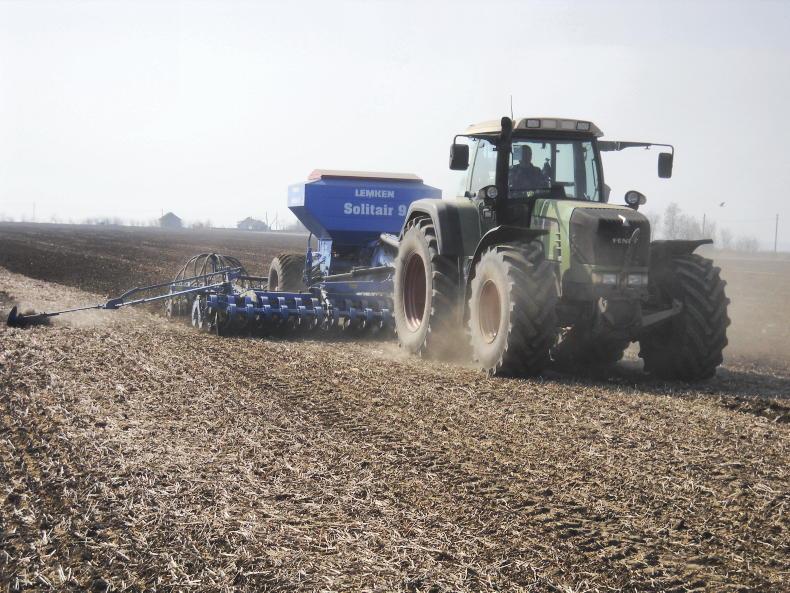
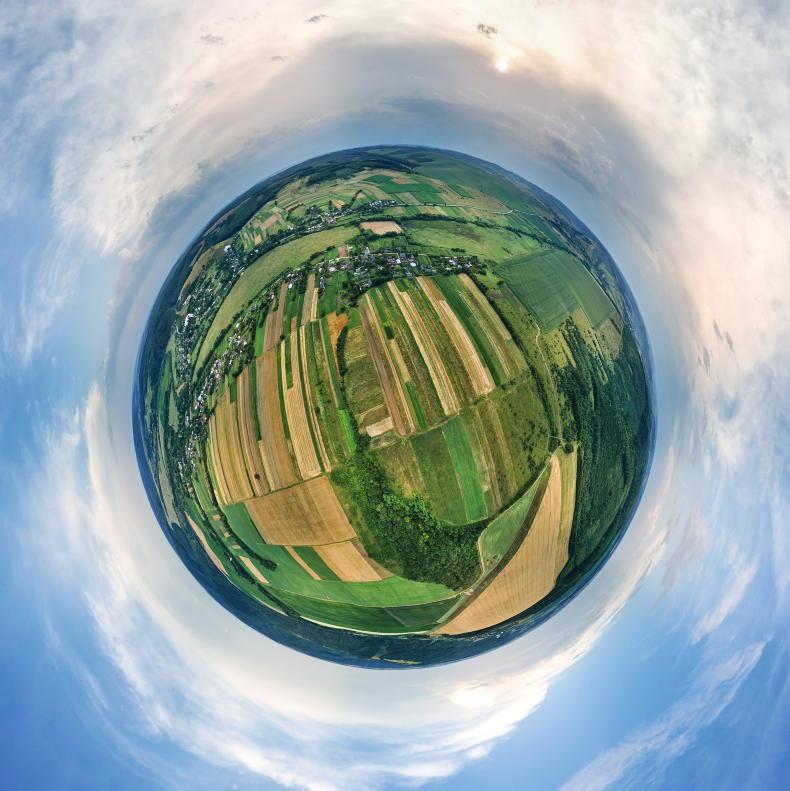

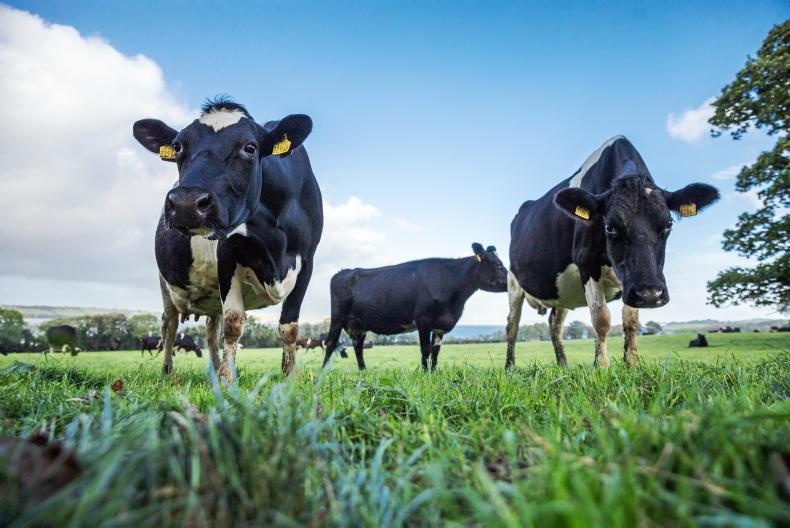

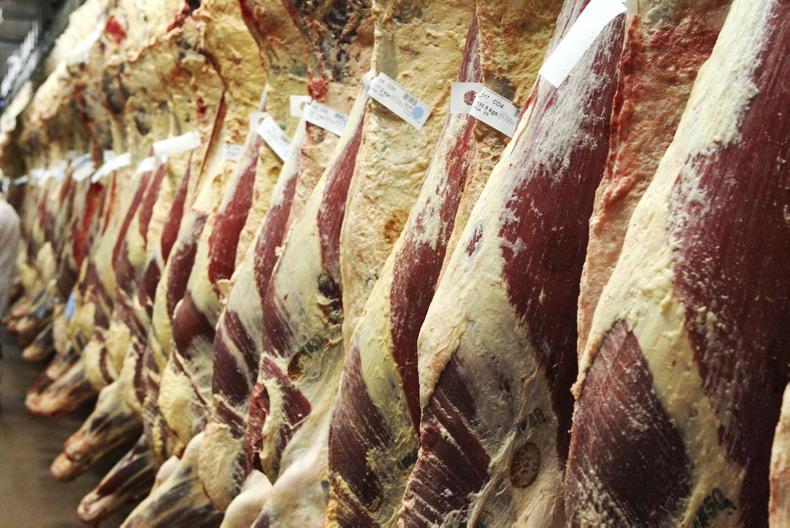
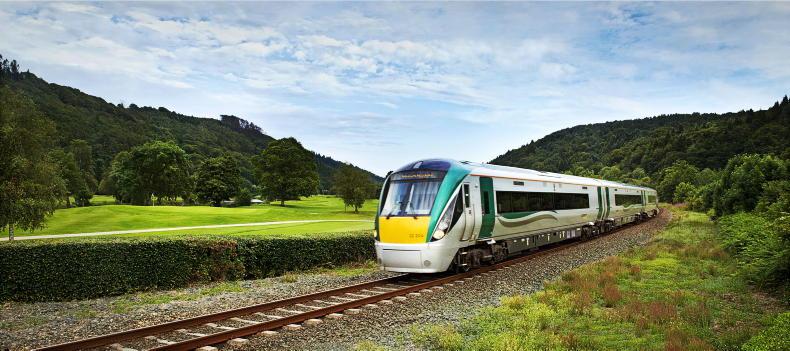
SHARING OPTIONS